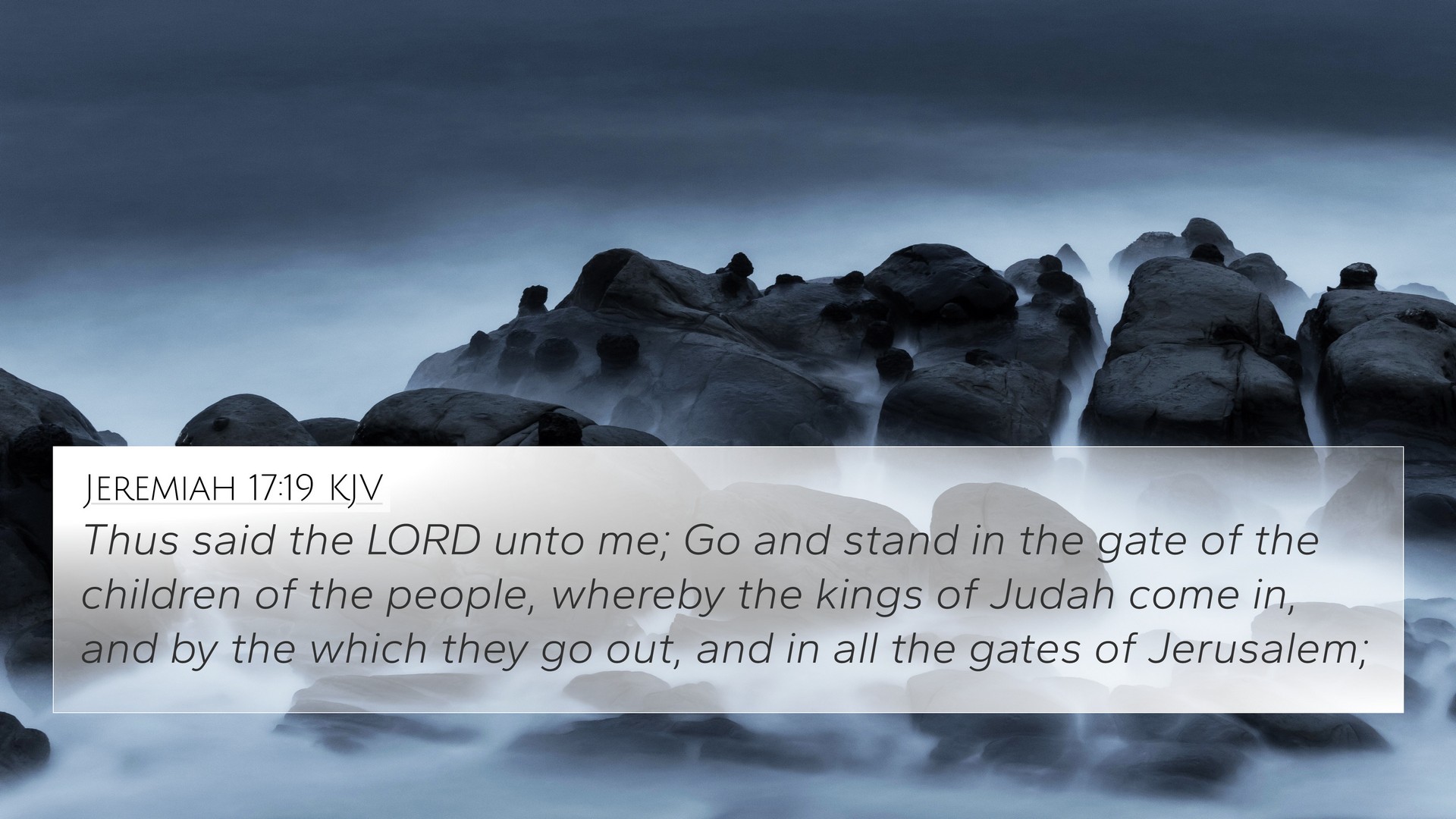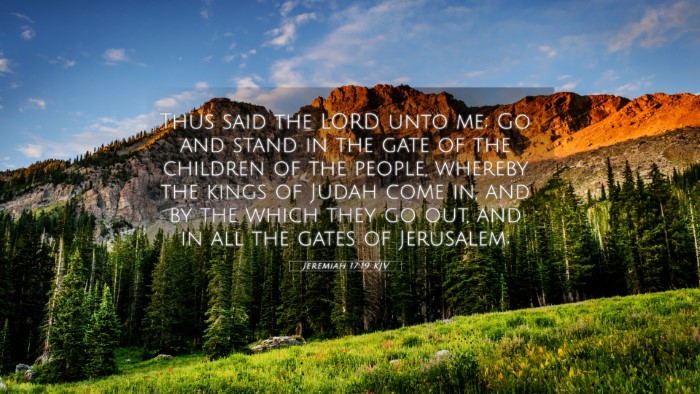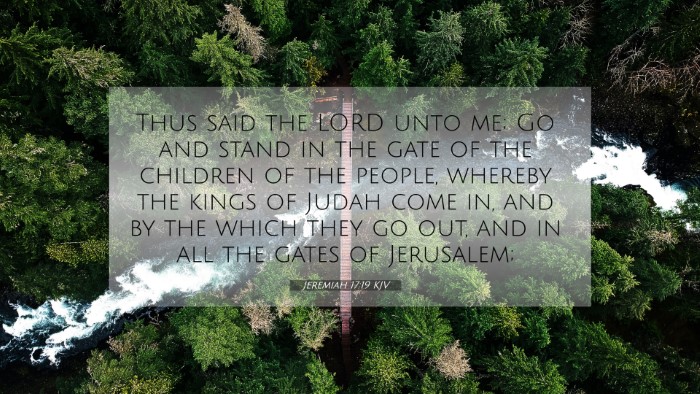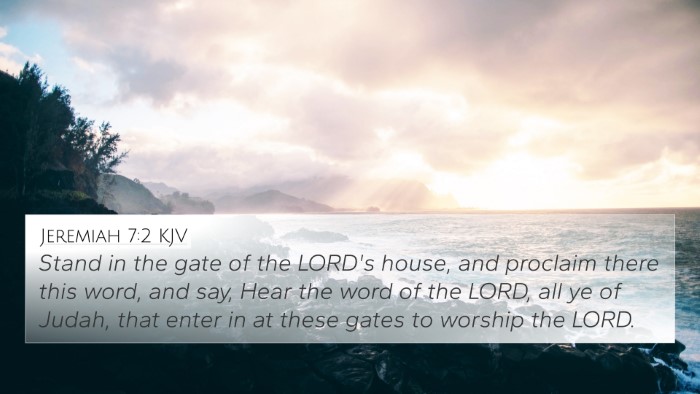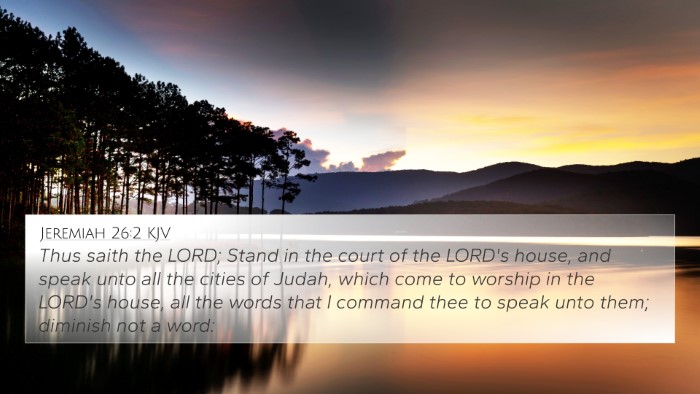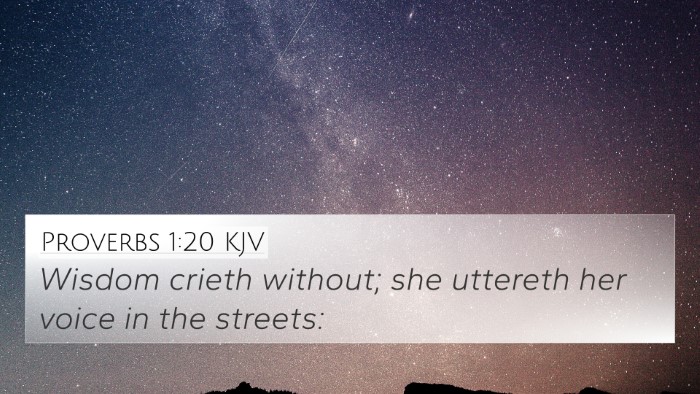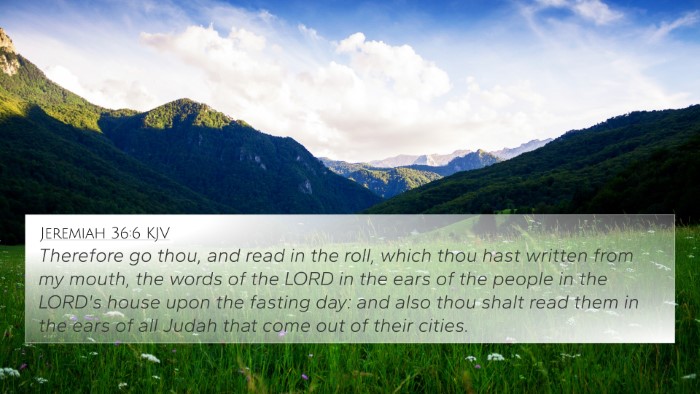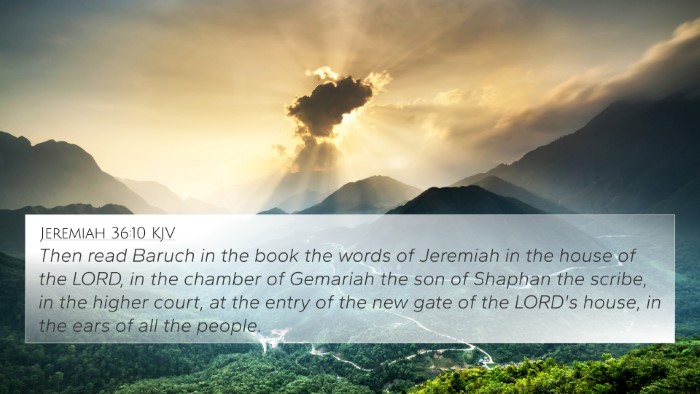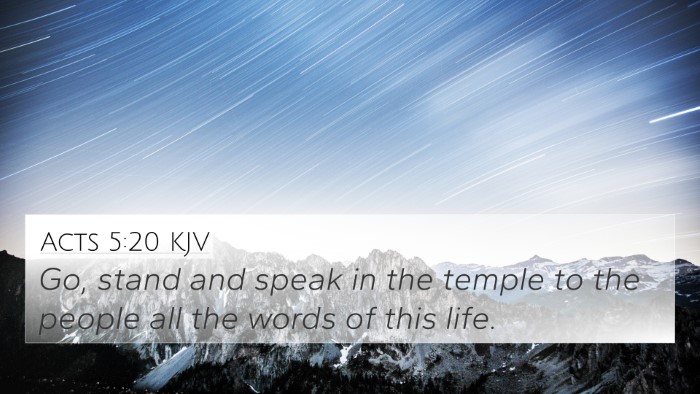Understanding Jeremiah 17:19
Jeremiah 17:19 reads: "Thus said the Lord unto me; Go and stand in the gate of the children of the people, whereby the kings of Judah come in, and by the which they go out, and in all the gates of Jerusalem;"
Meaning of Jeremiah 17:19
This verse illustrates the divine instruction given to the prophet Jeremiah, urging him to stand at a strategic location—the gates of Jerusalem. The gates symbolize access points for the people, particularly for the kings of Judah.
As highlighted by Matthew Henry, this command reflects God's desire for Jeremiah to deliver a significant message to not just the leaders but also the populace. It underscores prophetic authority and the need for vigilance among God's people.
Albert Barnes elaborates on the implications of standing at the gates, suggesting that Jeremiah was to observe and communicate God's message in an area where decisions were made and influence was wielded. This implies that the message of God was meant for both the leaders and the common people, emphasizing the universality of God's call for repentance.
Adam Clarke delves into the contextual significance, noting that gates were places of judgment, commerce, and social interaction. Jeremiah's position emphasizes that God’s word must penetrate all aspects of life, advising against the complacency and false security that could come from living within the walls of Jerusalem.
Cross-References and Thematic Connections
To deepen our understanding of Jeremiah 17:19, it is beneficial to explore inter-Biblical dialogue through cross-referencing. Here are key Bible verses related to this passage:
- Isaiah 1:10-17 - Here, Isaiah communicates God's call for repentance to leaders and people alike, drawing a parallel to Jeremiah's message.
- Ezekiel 3:17 - God charges Ezekiel to be a watchman, resembling Jeremiah's prophetic role to caution and guide.
- Matthew 23:37-39 - Jesus laments over Jerusalem, reflecting the themes of warning and repentance that overlap with Jeremiah's commission.
- Acts 3:19 - The call for repentance in the New Testament echoes the directive given to Jeremiah.
- Luke 13:34 - Again, Jesus expresses his longing to gather the people of Jerusalem, paralleling Jeremiah's prophetic heart.
- Jeremiah 1:17-19 - The introduction of Jeremiah’s prophetic mission sets a backdrop for his ongoing admonitions in the city.
- Proverbs 1:20-23 - Wisdom crying out in public spaces relates to the visible and vocal aspect of Jeremiah’s mission.
- Revelation 3:20 - The invitation for individuals to open the door reflects God's ongoing effort to engage with His people.
These connections highlight the consistent message throughout Scripture regarding the necessity of listening to God’s voice and responding to His calls for repentance.
Insights on Prophetic Duty
The comprehensive nature of Jeremiah’s task at the gates of Jerusalem reveals a model of prophetic engagement that extends beyond mere proclamation. As noted in Albert Barnes’ commentary, the role of a prophet involved being present in the marketplace of ideas and themes where societal behavior meets divine expectations.
Similarly, Matthew Henry emphasizes the communal aspect of prophecy, stating that the faithful must stand guard over public morality and spirituality, not just for individual edification but for societal restoration.
Tools for Bible Cross-Referencing
Understanding connections among Bible verses can be significantly aided by various tools and resources, including:
- Bible Concordance - A comprehensive index to locate specific words and themes throughout the Scripture.
- Bible Cross-Reference Guide - Helps identify thematic links between verses for deeper insights.
- Cross-Reference Bible Study - Methodologies for integrating verses to enrich understanding during study sessions.
- Bible Chain References - A technique to trace connected passages from one verse to another thematically.
- Comprehensive Bible Cross-Reference Materials - Various books and electronic tools that compile cross-references effectively.
Utilizing these resources will empower readers to engage more profoundly with the text, unlocking the interwoven tapestry of biblical themes and teachings.
Conclusion
Jeremiah 17:19 serves as a pivotal call for vigilance and prophetic responsibility, applicable to both past and contemporary audiences. Through various cross-references and thematic explorations, the call for repentance remains a resonant message, challenging us to heed God's word in our lives. Embracing tools for cross-referencing can lead to a richer understanding of Scripture and encourage profound connections that uplift spiritual journeys.
